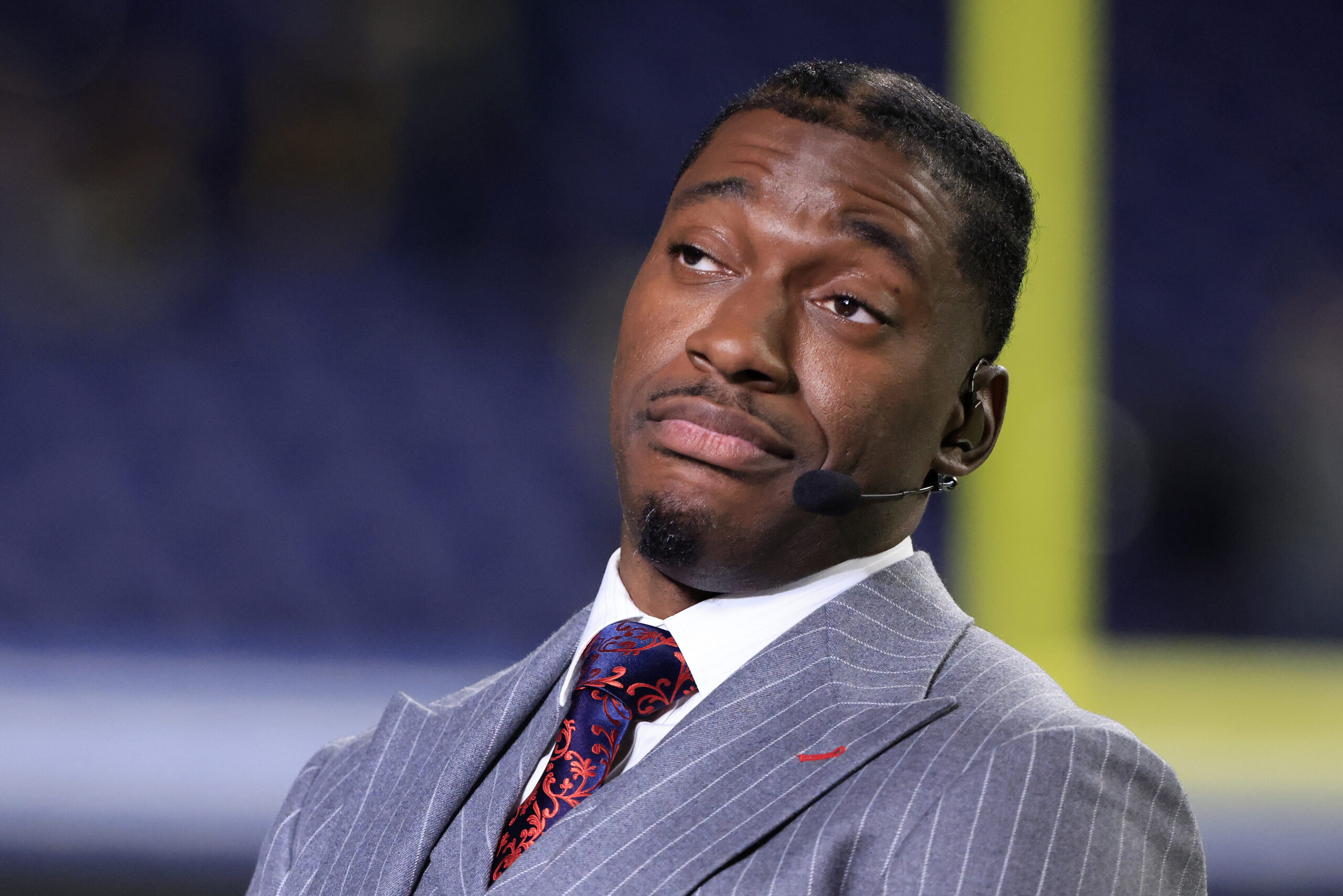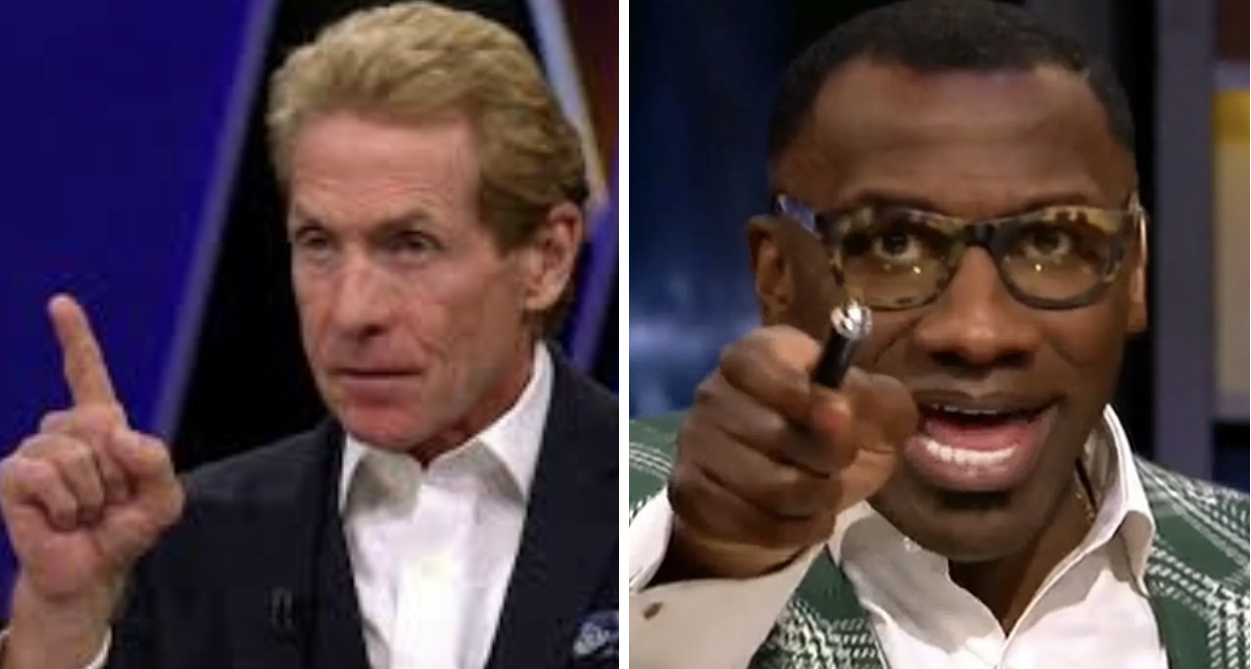This morning, I was greeted with the sad and sobering news that ESPN’s Stuart Scott had succumbed to cancer, passing away at the age of 49. It’s often said that people lose their fight with the dreaded disease, but while accepting the Jimmy V Award for Perseverance this summer at the ESPY Awards, Scott said, “When you die, it does not mean that you lose to cancer. You beat cancer by how you live, and in the manner in which you live.”
Stuart Scott will be remembered for many things, because he lived his life in a way that should be embraced and emulated. As an on-air personality, he brought a flair and energy that reminded many of talking about sports, with extreme passion and humor, in the barbershops and on the street corners of our communities – sacrosanct places that have their unique customs, rhythms and dialects.
In essence, he brought a sense of soul to the sports arena that hadn’t previously been there on television, opening a window into a form of expression that added immeasurably to the way the larger populace now talks about the games that we follow and love.
Those catchphrases that he popularized, like “Cooler than the other side of the pillow,” were long-held staples in the African-American community, a means of expression that stretch back to time immortal. I grew up hearing that phrase, and others like, “Cool as a fan” or “As cold as ice”, and countless other ways of describing something or someone that spoke to one’s sense of being calm under pressure, or an individual’s sense of style, equilibrium, behavior, self-possession, attitude or comportment that became popularized and embedded in the lexicon of American popular culture thanks to the lingo of Jazz musicians like Lester Young in the 1940’s.
He didn’t invent these phrases, but as I ponder Stu’s importance and impact, I’m reminded of Michael Eric Dyson’s phenomenal interlude on I Stand Alone, the song by The Robert Glasper Experiment on their Black Radio 2 album that features Common and Patrick Stump, where he talks about the irresistible appeal of black individuality.
“The very people who blazed our path to self-expression and pioneered a resolutely distinct and individual voice have too often succumbed to mind-numbing sameness and been seduced by simply repeating what we hear, what somebody else said or thought and not digging deep to learn what we think, or what we feel or what we believe,” Dyson said. “Now it is true that the genius of African-American culture is surely its repetition, but the key to such repetition was that new elements were added each go-round. Every round goes higher and higher. Something fresh popped off the page or jumped from a rhythm that had been recycled through the imagination of a writer or a musician. Each new installation bore the imprint of our unquenchable thirst to say something of our own, in our own way, in our own voice, as best we could.”
Over the next few days, the tributes to Stuart Scott will pour in from every direction. Few will be as complete as this piece, written by ESPN’s Steve Wulf, a man who has served as an advisor and mentor to me in my own sports media journey.
When I think of Stu, I’ll flash back to my own brief interaction with him years ago, at the National Association of Black Journalists conference in Dallas, Texas. At the time, I was determined to have an impact while merging my love for the written word with my unhealthy obsession with sports. I attended a function sponsored by NABJ’s Sports Task Force that honored, among others, basketball legend Marques Haynes and former NBA player Mario Elie.
I arrived early and took a seat at an empty table, somewhat intimidated because I was an unknown writer who’d been summarily dismissed earlier by an Editor at the Washington Post when I approached him and attempted to hand him a copy of a story I’d written on former NBA player and coach, Butch Beard.
As the room began to fill up, Stu walked up to me and said, “Hey, you mind if I sit here?”, gesturing toward the seat next to me. After Elie’s speech, the floor was opened up for questions. I raised my hand and asked Elie something that made Stu tell me afterwards, “Man, that was an incredible question. How did you know all of that stuff?”
We talked until the event was over as he peppered me with genuine inquiries about who I was, where I’d gone to school, what my interests were in the field and what I wanted to do in the future. We realized that we were both equally afflicted as basketball junkies, and that we were also members of the same fraternity, Alpha Phi Alpha.
As the event wrapped up and the crowd began to disperse, we embraced in our secret fraternal handshake, otherwise known as “The Grip”, and I thanked him, telling him that his encouragement and interest meant a lot to me. He looked me in the eye and said, “Brother Ali, Game Recognize Game! And I can tell, just having spent the last hour with you, that you have more game than 99% of the people working in this business.”
He told me to hold fast to the dreams and visions that I harbored, to work my ass off, that he was convinced that one day, when we met again years later, that we would celebrate those dreams coming to fruition.
I never had a chance to meet up with him again, but I just wanted to thank him for what he meant in my own walk through this very competitive and humbling business.
His resolutely distinct and individual voice will resonate throughout the sports landscape long after his passing, as he took some old and added some new elements that made the nightly sportscast pop and sizzle in ways that it never had before.
To further paraphrase what Michael Eric Dyson said, Stuart Scott’s work bore the imprint of his own unquenchable thirst to say something of his own, in his own way, in his own voice, as best he could, the trends of the times be damned.
Stuart Scott stood alone, fully present in his own uniqueness. And this business, and all who follow in his footsteps, are exponentially better because of it.
Thanks Stu.



